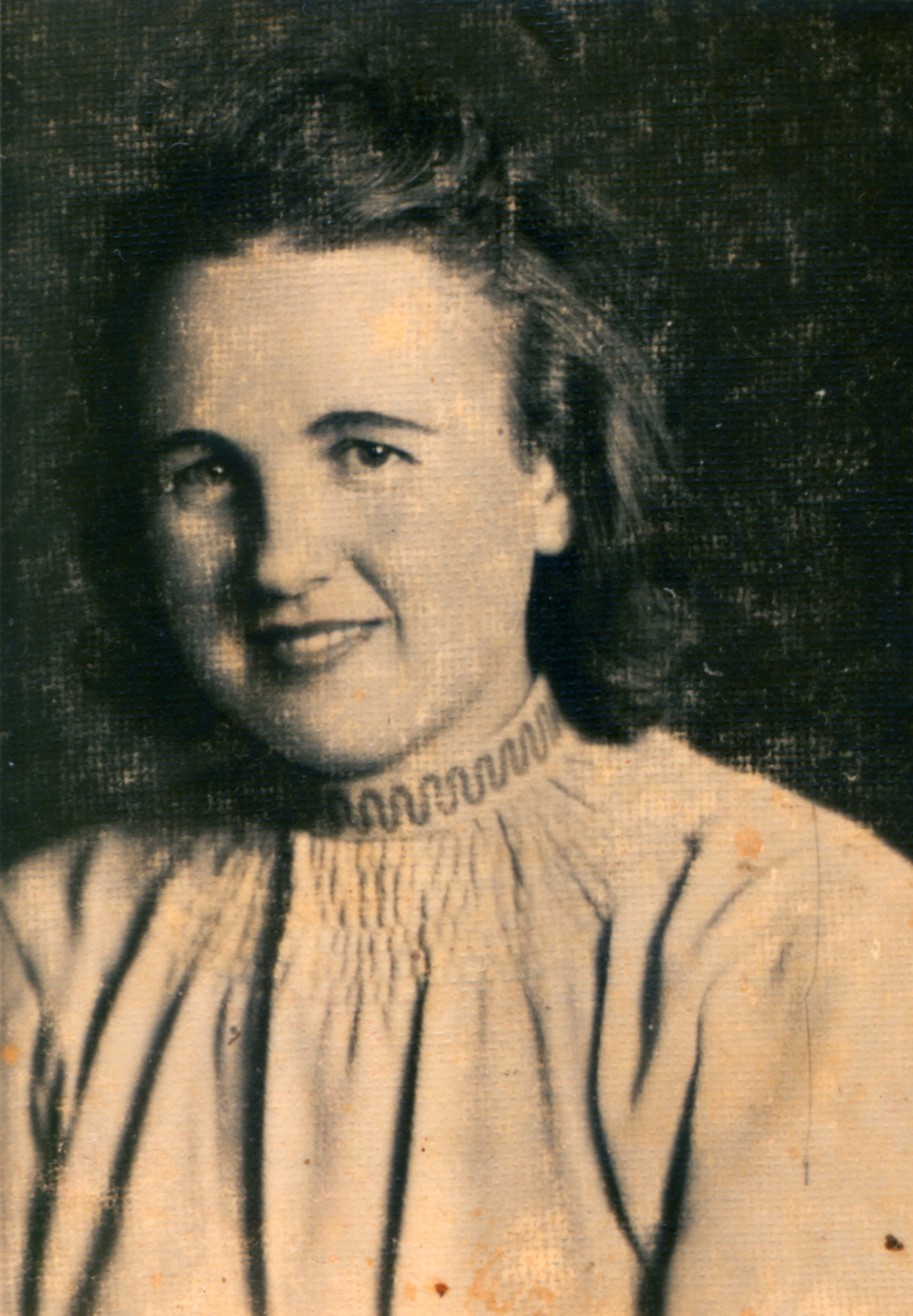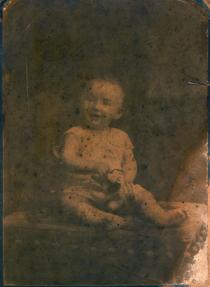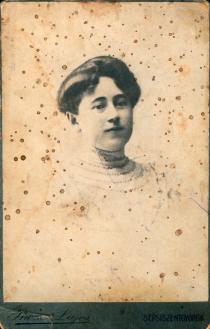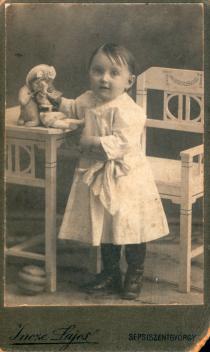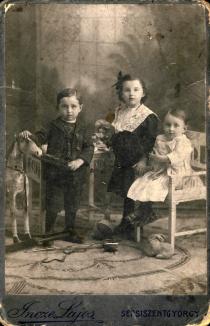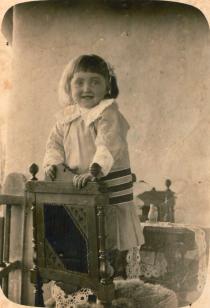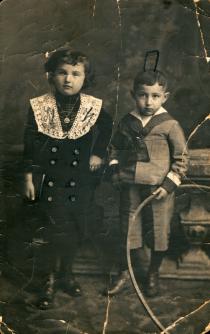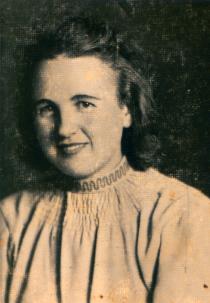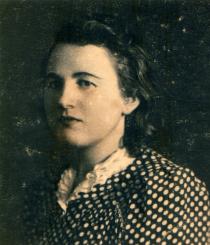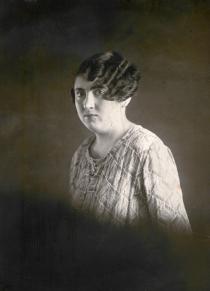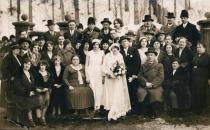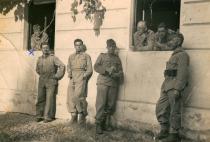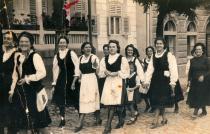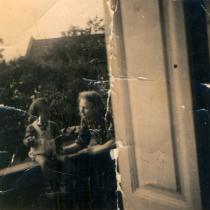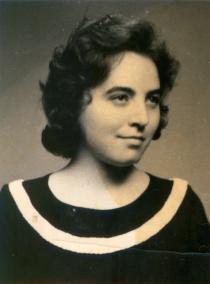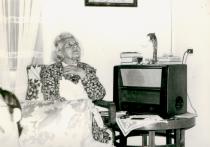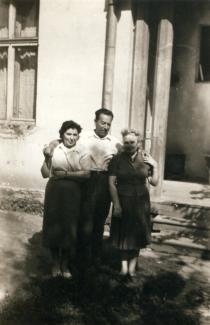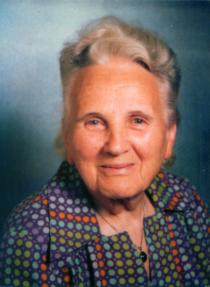This is me Alice Kosa, as a girl, at the end of the 1920s. I had a Jewish name - Szuri -, as one had to have. But nobody ever called me Szuri, I don't know what I would have done.
A child likes what he gets used to. The family called me Alica, called me Aliszka, but nobody called me Szuri
I finished four years of gymnasium in the Miko, I finished the fourth grade of gymnasium in 1924.
And then there was a two-years reformed school of commerce in Brasso, and I attended it, I finished my studies in 1926.
I don't believe there are any former classmates left in Brasso. I don't think they would live for so long.
I would have preferred to go to Kolozsvar, to the Jewish gymnasium, and then to become a doctor.
I would have liked to become a doctor by all means - though I wouldn't have been capable for it -, I don't know why my father sent me yet to Brasso, to the two-year commercial school.
Though I finished this two-year commercial school in Brasso, I didn't start to work, it wasn't fashionable back then [for women to work]. And women could hardly get a job in offices.
I didn't try hard either. I lived at my grandmother's for a while, until 1929, when my father rented a nice big house in Nagyborosnyo, he wanted me to go there.
Because he had two old maid sisters, and they lived together [until 1929].
But one of my old [maid] aunts got married, and so my father wanted to live separately.
Well, I went there in 1929, but my husband started to court me already, so I don't know precisely, I stayed with my father for about two years, because on 25th December 1930 I got married, and I moved to Sepsiszentgyorgy, my husband was from here.
My husband and I were almost neighbors, and my husband, as a boy visited many times a family, who were my relatives [the Frank family].
The boy and the girl of that family were my second-degree relatives, but they were younger than him, even so Jeno, my [future] husband went there to spend time.
I was attending the commercial school in Brasso, and my sister, while she went to school here [in Sepsiszentgyorgy], she stayed at grandma. And my poor sister, she was a very coquettish girl.
And when I came home for Christmas holidays, I heard that Jeno was courting my sister.
I was very upset that a grown-up man was interested in such a young girl. Well, she was still young, twelve or thirteen years old - but she was more developed than me - and he was around twenty.
So I took him for an unreliable person, and I couldn't stand him because of my sister, I didn't fancy him, and since I behaved towards him accordingly, he didn't fancy me either.
He noticed I couldn't stand him. This Frank family was raising an orphan girl, they took a great advantage of her.
One night, at twilight, I don't know why, but I went to this family.
Nobody was at home, just this adopted girl. And I entered, because I liked talking to her, I was also sorry for her, because she was orphan, and she was so exploited.
And as we were talking, once somebody is knocking at the door, and who came? Mister Kosa.
I don't know how this idea came to my mind, I thought I would be nice, let's see what would happen.
I tell you honestly, just for fun. And I received him very nicely. He was telling me stories, finally I don't know how we came to this, but I wrote something on a paper, and he wrote me back [we were corresponding].
We were sticking them to each other. How did this develop, from a joke, that finally [we got married]… it's unbelievable.
This happened in 1929, and we got married on 25th December 1930.
We organized an engagement ceremony one year before the marriage, it was a little greater [than our wedding], but not much.
I was bride for a long time, well Jeno had to acquire an employment, otherwise my father wouldn't [have given his consent].
The engagement was kept in our apartment, we rented a nice apartment with my father in 1929, when I went home.
My husband's close relatives came too: his parents, his sibling - his two brothers and their wives, then Rozsika and her husband.
But we didn't invite the first-degree cousins. And these [relatives] of mine [were there], who were in Nagyborosnyo [my father's sisters, my sister].
We didn't have a religious wedding. I told Jeno that I wouldn't quit my religion, even if I wasn't observing it, I wouldn't quit it.
I don't believe in it more, so why should I? Jeno and I walked up to the parish hall of Nagyborosnyo, and I said whoever would be there, would be the witness.
So an engineer became the witness, he worked in Brasso, at the sugarworks as an engineer, and he had just come home, and a farmer. That's on my marriage certificate.
They were in front of the parish hall, the farmer was talking to the engineer, and we asked them to be the witnesses.
My two aunts prepared a good, tasty lunch, cakes, all kinds of things, but just for the family. My husband's parents weren't there [for lunch].
